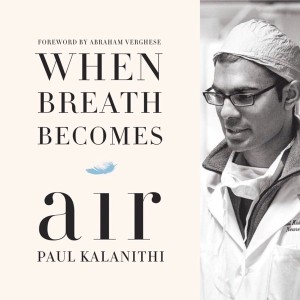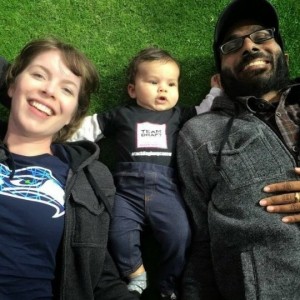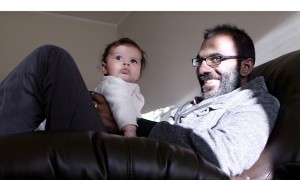Paul Kalanithi – ” When Breath Becomes Air”
 “…I found myself increasingly often arguing that direct experience of life-and-death questions was essential to generating substantial moral opinions about them. Words began to feel as weightless as the breath that carried them. Stepping back, I realized that I was merely confirming what I already knew: I wanted that direct experience. It was only in practicing medicine that I could pursue a serious biological philosophy. Moral speculation was puny compared to moral action. ( p.43)
“…I found myself increasingly often arguing that direct experience of life-and-death questions was essential to generating substantial moral opinions about them. Words began to feel as weightless as the breath that carried them. Stepping back, I realized that I was merely confirming what I already knew: I wanted that direct experience. It was only in practicing medicine that I could pursue a serious biological philosophy. Moral speculation was puny compared to moral action. ( p.43)
Paul Kalanithi’s When Breath Becomes Air is an account of his being diagnosed with cancer, the birth of his daughter, rediscovering religion (though his parents were Christian and Hindu) and his death, as narrated in an epilogue by his wife, Lucy. It is a heartbreakingly beautiful book written with surgical precision and an objective insight that only a doctor can possess. It comes across throughout the book but is evident when Paul Kalanithi is recalling a terribly acute back spasm he had while at a railway station. As he lay on the hard wooden bench to manage the pain he was reciting the name of every single muscle that was paining. In Jan 2014 he wrote an essay for the New York Times called, “How long have I got left?” ( http://www.nytimes.com/2014/01/25/opinion/sunday/how-long-have-i-got-left.html ) and it went viral. Subsequently he wrote/interviewed for Stanford Medicine in Spring 2014 called, “Before I go” ( http://stanmed.stanford.edu/2015spring/before-i-go.html ).
diagnosed with cancer, the birth of his daughter, rediscovering religion (though his parents were Christian and Hindu) and his death, as narrated in an epilogue by his wife, Lucy. It is a heartbreakingly beautiful book written with surgical precision and an objective insight that only a doctor can possess. It comes across throughout the book but is evident when Paul Kalanithi is recalling a terribly acute back spasm he had while at a railway station. As he lay on the hard wooden bench to manage the pain he was reciting the name of every single muscle that was paining. In Jan 2014 he wrote an essay for the New York Times called, “How long have I got left?” ( http://www.nytimes.com/2014/01/25/opinion/sunday/how-long-have-i-got-left.html ) and it went viral. Subsequently he wrote/interviewed for Stanford Medicine in Spring 2014 called, “Before I go” ( http://stanmed.stanford.edu/2015spring/before-i-go.html ).
Paul Kalanithi was a voracious reader when he was a child. His father and his elder brother were doctors but when Paul applied to university, his first preference were the literature and history courses. But before leaving his then girlfriend in Arizona encouraged him to read a “low brow” book that she had enjoyed instead of the “high culture” reading he was constantly immersed in. This brow book influenced Paul considerably. It talked about the importance of the mind and the brain. After finishing the book, he browsed through the courses being offered at Stanford and began to explore some of the biological science classes too. He turned out to be an exceptional student who would survive the 88-hour week and more, plus study and remained top of the class. Unfortunately cancer intervened in the eighteen months of his residency. This put immense pressure on his marriage to Lucy who was also at Stanford. But despite the hiccups, Lucy and Paul were together through the first phase of his treatment. At this point he did not require chemotherapy as the cancer began to respond to the oncologist’s treatment. So much so, Paul returned to work a few months later, although on a lighter schedule. Within days he had returned to his full workload of surgeries and was in the OT every day. Unfortunately soon the cancer returned. This time far more virulently. He read his own scans at the end of a long day at work. Here is a very moving excerpt from the book published in the New Yorker on 11 January 2016 where Paul recollects his last day at work — “My last day as a surgeon”. (http://www.newyorker.com/books/page-turner/my-last-day-as-a-surgeon )
 Paul left the manuscript incomplete on his computer. He requested his wife to complete it. Lucy Kalanithi has written a heartrendingly poignant essay as the epilogue to the book. Like her husband, Lucy too is a medical professional, but there is marked difference in their writing styles. Unlike her husband who brings in his love for literature with his passion for medicine to write crisply and objectively, Lucy writes gently, calmly, but the pain at losing her much beloved husband is unmistakable. She completes the book by describing his last day, holding his eight-month-old daughter for the last time, the funeral, the memorial service and his grave. ( I was weeping by the time I finished reading the essay.) On 6 January 2016, Lucy Kalanithi wrote in the New York Times, “My Marriage Didn’t End When I Became a Widow”. ( http://opinionator.blogs.nytimes.com/2016/01/06/my-marriage-didnt-end-when-i-became-a-widow/) It describes some of the memories she recounts in the epilogue.
Paul left the manuscript incomplete on his computer. He requested his wife to complete it. Lucy Kalanithi has written a heartrendingly poignant essay as the epilogue to the book. Like her husband, Lucy too is a medical professional, but there is marked difference in their writing styles. Unlike her husband who brings in his love for literature with his passion for medicine to write crisply and objectively, Lucy writes gently, calmly, but the pain at losing her much beloved husband is unmistakable. She completes the book by describing his last day, holding his eight-month-old daughter for the last time, the funeral, the memorial service and his grave. ( I was weeping by the time I finished reading the essay.) On 6 January 2016, Lucy Kalanithi wrote in the New York Times, “My Marriage Didn’t End When I Became a Widow”. ( http://opinionator.blogs.nytimes.com/2016/01/06/my-marriage-didnt-end-when-i-became-a-widow/) It describes some of the memories she recounts in the epilogue.
When Breath Becomes Air would be better seen as having been written by husband and wife. The tragedy that befell such a young family where the couple had promising careers ahead of them can only be experienced by reading the book in one sitting, reading/hearing Paul at first and then closely followed by Lucy’s voice grieving at the loss of a much loved husband, companion, friend, father, son, brother and surgeon. His memorial service in Stanford was attended by his family, friends, colleagues and patients.
I have often wondered what it must be like for a doctor to realise they are ill and their mind analyses, evaluates every stage while they are sick. When Paul kept prompting his oncologist for some idea of the realistic time it would require him to recover, she kept evading his question. At one point in the book he has an epiphany when he realises it is sometimes best to stop being a doctor and looking after oneself but be treated by others, instead of second guessing their treatment.
When Breath Becomes Air is a very moving book and should be read by everyone.
( The images used to accompany this article are from the Internet. I do not own the copyright to them at all. If anyone knows who owns them, please let me know and I will acknowledge the source.)
Paul Kalanithi When Breath Becomes Air ( Foreword by Abraham Verghese) The Bodley Head, an imprint of Vintage, Penguin Random House, London, 2016. Hb. pp. 230 £ 12.99
1 February 2016
